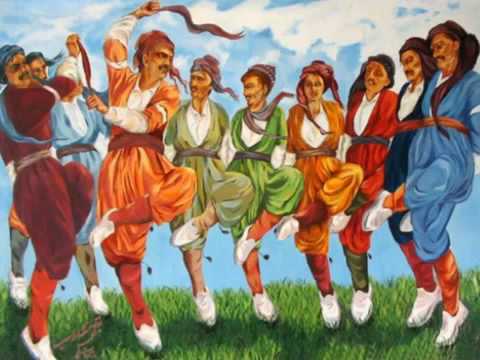Lebanese dancing
In the
last Warda blog we talked about belly dancing and the incredible performances of our resident dancer
Dinah, but belly dancing is traditionally a woman’s dancing style. The kind of
traditional Lebanese dancing performed by men is very different, but just as
impressive!
Traditionally
men and women would not have danced together, though mixed dancing is now
viewed in a far more relaxed way. The most common dancing style – dabke – is performed by several men in a
line or a circle and is cooperative in that everyone performs the same steps,
like British country dancing or American line-dancing.
The dance
is led by a lawweeh, who will set the
pace and demonstrate the moves. In some dances he will also perform a more
complicated solo dance. The lawweeh may be a professional dancer or someone who
simply dances well, and the other dancers will take their lead from him.
Common
steps in the dabke involve synchronised jumping and stamping the feet. In many
dances the performers will link hands, which means there are very few arm
movements. Dabke is all about footwork, and this creates a strong and primal
rhythm, complementing the music.
The main instrument the dancers perform to is the drum – dabke is a very percussive dancing style. Tambourines are often used as well, while the melody is typically created with an oud (a stringed instrument like a guitar but with a deeper and richer tone), a mijwiz (similar to a clarinet) and a singer.

Source: https://en.wikipedia.org/wiki/Dabke
No comments:
Post a Comment